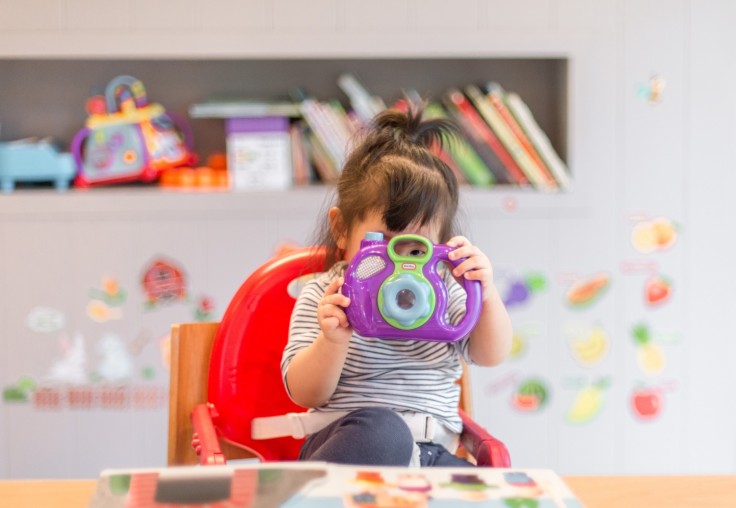
If the idea of leaving your baby with someone else all day, every workday, makes you anxious and worried, you're not alone. It's a huge decision, especially if this is your firstborn.
But if you're thinking of going back to work, you're in reliable company: Based on some surveys, over 70 percent of all moms work outside the home. And that also means there are lots of great child care choices, from baby-sitters to nannies and more. One of your most reliable options is a daycare, either in a group center or home daycare. Many centers give excellent care with licensed, qualified caregivers in an ecosystem where your little one will learn valuable socialization with other children her age. Here's what you need to know about daycare and what to look for when you visit a daycare facility.
You may want to give yourself a little longer time to locate a daycare, depending on where you live. It's an excellent idea to begin hunting for at least two months before you intend to go back to work and before your baby even arrives, especially if you live in a big city.
Once you've selected your daycare prospects, schedule a visit at least three to five group/home daycare centers. Make sure you see the following points before you register your baby:
Happy Children & Staff
You would want to see intelligent, content, neat babies in spacious rooms, with a tranquil area where they can nap in separate cradles (and according to their respective schedules). Caregivers should genuinely look active, easy-going, and genuinely engaged in the children. Visit during the end of the day to get a more accurate view of what the center is like than you would first thing in the morning.
A Stimulating Environment
Look for plenty of physical and verbal interaction among children and caregivers. Does the staff get down on the ground and communicate with children? Are the kids interested and not zoned out? Check as well for age-appropriate toys that are in a stable state. And ask for a summary of the regular activities, which should cover lots of talking, reading, singing and dancing as well as on-the-floor playtime exercises.
Separation Of Age Groups
Infants below 12 months of age shouldn't be mingling with toddlers and older kids. Bigger tots can be pretty unruly and still haven't learned to be gentle with babies.
Locked Doors
Your daughter can't come and go as she wishes at home, so she shouldn't be capable of freely strolling or leaving the daycare center too. Adult visitors should also be strictly monitored so only staff and authorized grown-ups who are there to pick up and drop off can access.
A Clean & Healthy Environment
A well-managed group daycare center illustrates its health and hygiene rules on a sign, and then obeys them:
Caregivers wash hands every after diaper change.
The diapering and food prep zones are always kept isolated and cleaned after each usage.
Feeding utensils are cleaned in a dishwasher or are disposable.
Bottles are prepped under sterile conditions.
Teething rings, pacifiers, and washcloths shouldn't be shared.
Toys are washed off with a sanitizing liquid, and each kid receives a separate box.
Safety Measures
Make sure that the daycare gives a secure atmosphere for children by practicing the same safety precautions you do at home. There should be:
No choking hazards, including miniature toys or playthings that can shatter apart into tiny parts.
No pillows or fluffy bedcovers in cribs; children should be put to sleep on their backs.
Bars on open stairways.
Window protectors on upper windows.
Neat and tidy kitchen and bathroom and admirably an enclosed outdoor space for play.
Clear and clean floors.
Available smoke detectors, designated exits, and fire extinguishers.